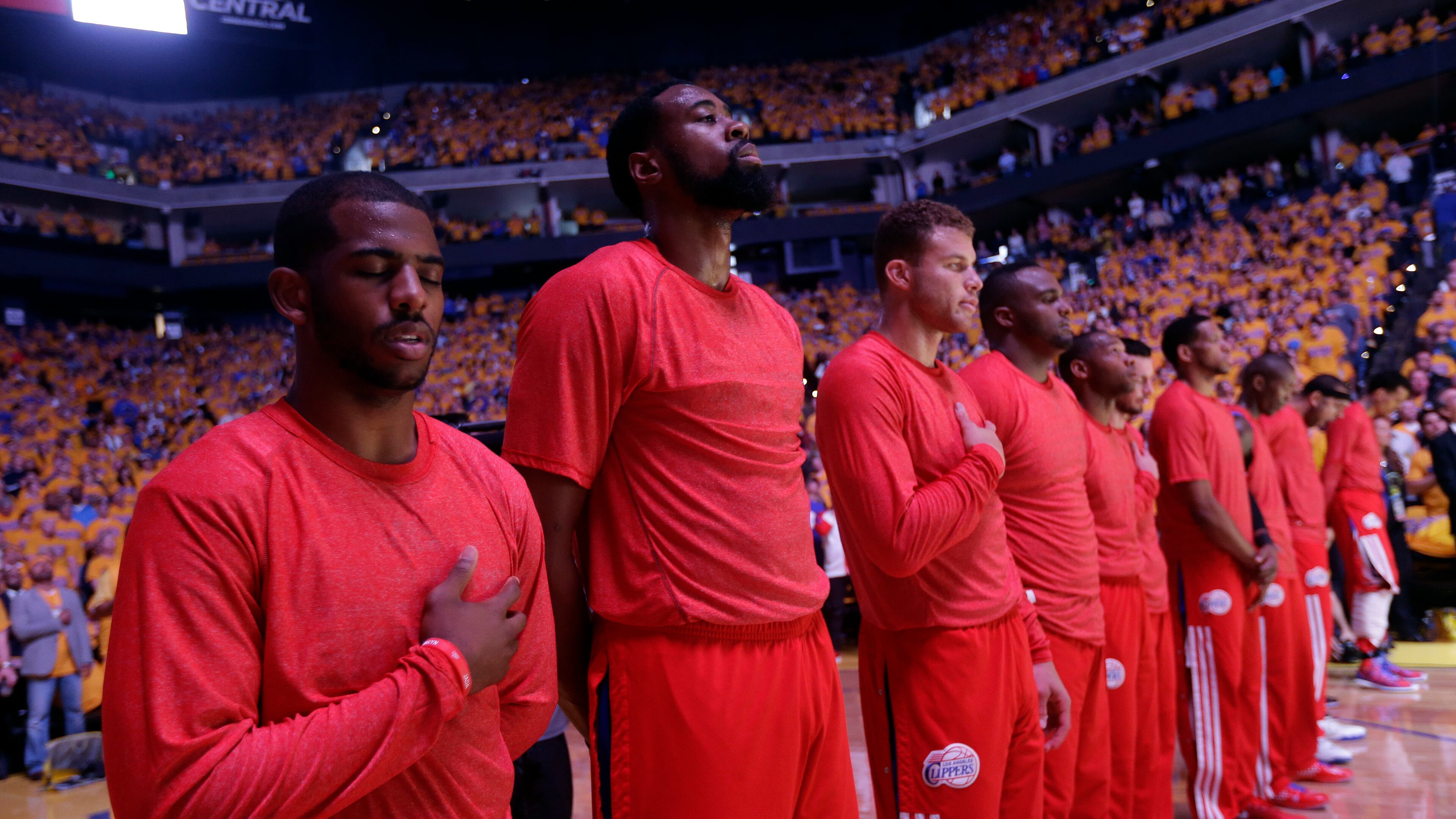Hawks' Levenson would support Sterling's exit

It has been two days and we're still waiting for a flat-out denial from Los Angeles Clippers owner Donald Sterling that it was his voice on a secretly recorded conversation in which he revealed himself (again) as a racist. There has been only a non-denial/denial from team president Andy Roeser, whose statement read, in part: "Mr. Sterling is emphatic that what is reflected on that recording is not consistent with, nor does it reflect his views, beliefs or feelings."
Nowhere in the 176-word statement were the words, "He didn't say it."
Given Sterling has been accused of racial and gender discrimination often in the past -- notably paying $2.73 million in 2009 to settle a lawsuit brought by the Justice Department for not renting apartments to African Americans or Hispanics -- operate on the assumption that the voice on the recording is his. What can the NBA do? Obviously, everybody wants Sterling out -- players, coaches, owners, corporate partners, fans, peanut salesmen.
NBA commissioner Adam Silver can, and likely will, suspend Sterling for the playoffs. But there's some debate as to whether he is empowered to force Sterling to sell.
Hawks part owner Bruce Levenson said he would support a vote if one was taken among the NBA's other 29 owners to oust Sterling. Levenson released a statement condemning Sterling's remarks, and then referenced comments from Sacramento mayor and former NBA star Kevin Johnson: "Mayor Kevin Johnson was correct when he said that this is a defining moment for our league and that Sterling should be given the maximum penalty for his comments. I strongly believe that the league has to have a zero-tolerance policy against racism and discrimination in any form and I have faith that commissioner Adam Silver will act in what’s the best interest of the league. I have expressed these views to Adam and my fellow owners.”
When asked during an interview on 92.9/The Game Monday whether he would support a vote to oust Sterling or force him to sell, should the owner's identity on the tapes be confirmed, Levenson said: "Yes."
He was less certain if the commissioner's office has that power. He acknowledged that owners have to sign a document "that’s literally hundreds of pages long” and there are "representations we have to make to be good stewards as owners of our teams.”
The document, Levenson said, gives the commissioner's office "broad powers ... when owners have crossed lines. This is a pretty big line that appears to have been crossed. Can I tell you exactly how far Adam can I go? I can’t. I’m sure the lawyers are advising him on that.”
Two other aspects of this worth noting:
1.) The NBA can partly blame itself for all this. Former commissioner David Stern largely was lauded for his work, but he and the league's owners enabled Sterling for years. Sterling long has been considered one of pro sports' most embarrassing owners but the NBA's response largely has been to ignore him, maybe believing they could get away with it because the Clippers historically have been a bad team and were dwarfed in their own city by the Lakers in media attention.
2.) Not that Silver will ask Hawks general manager Danny Ferry for his opinion of Sterling, but there's a little bit of history there. When Ferry was coming out of Duke in 1989, he and his agent asked the Clippers not to draft him. They did anyway -- second overall. So Ferry opted to temporarily give up his NBA dream and signed with a team in Rome, Italy (Il Messaggero). He played there for a year before the Clippers traded his draft rights to Cleveland.


